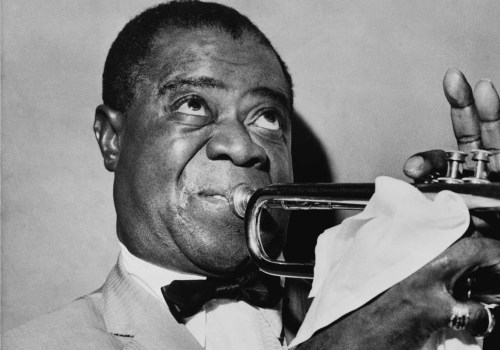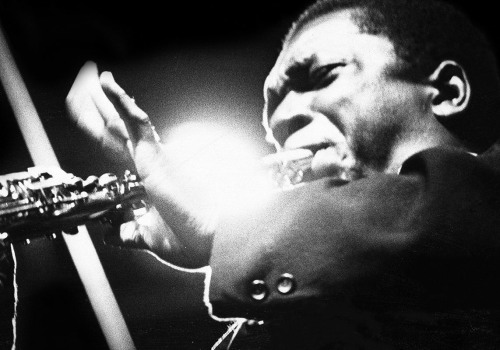Merv 8 Pleated Furnace Air Filters
The present article aims to provide a comprehensive analysis of Merv 8 pleated furnace air filters, exploring their benefits, impact on indoor air quality, and considerations for optimal performance. These filters have garnered attention in recent years due to their ability to trap a significant amount of airborne particles and allergens. By delving into the technical aspects of filter ratings, misconceptions surrounding Merv 8 filters can be addressed. Furthermore, maintenance tips will be provided to ensure the efficient functioning of these filters.
Benefits of Merv 8 Pleated Furnace Air Filters
The benefits of Merv 8 pleated furnace air filters include improved indoor air quality and enhanced protection against airborne particles. These filters are designed to efficiently capture a wide range of contaminants, such as dust, pollen, pet dander, and mold spores. By effectively trapping these particles, Merv 8 filters prevent them from circulating in the air and being inhaled by occupants of the space.
One key benefit of Merv 8 pleated furnace air filters is their ability to improve air circulation within a building. As these filters efficiently capture airborne particles, they prevent them from accumulating on surfaces and obstructing airflow through the HVAC system. This leads to better ventilation and distribution of clean air throughout the space.
Another advantage of Merv 8 filters is their cost-effective filtration capability. These filters offer a good balance between filtration efficiency and cost-effectiveness compared to higher-rated alternatives. They provide adequate filtration for most residential and commercial applications without significantly increasing maintenance or replacement costs.
How Merv 8 Filters Improve Indoor Air Quality
Merv 8 filters are designed to capture a higher percentage of particles in the air due to their increased efficiency compared to lower-rated filters. By trapping more pollutants and allergens, these filters can help reduce the amount of airborne allergens present in indoor environments, leading to improved respiratory health for individuals who suffer from allergies or asthma.
Higher Filtration Efficiency
Achieving higher filtration efficiency is a key objective when evaluating MERV 8 pleated furnace air filters. These filters are designed to capture a high percentage of airborne particles, providing enhanced air quality in indoor environments. MERV 8 filters have a minimum particle size efficiency of 70% for particles in the range of 3 to 10 micrometers. This means that they can effectively trap common pollutants such as dust, pollen, mold spores, pet dander, and lint. The improved filtration performance of MERV 8 filters ensures that these contaminants are removed from the air circulating in homes or commercial buildings. By removing these particles, MERV 8 filters contribute to reducing respiratory irritants and allergens in the air, which ultimately promotes healthier indoor air quality for occupants.
Reduced Airborne Allergens
Reduced airborne allergens contribute to improved indoor air quality and promote healthier environments for occupants. Indoor air pollution control is crucial in reducing allergy symptoms and creating a safe living space. One effective measure to achieve this is the use of MERV 8 pleated furnace air filters. These filters are designed with high filtration efficiency, capable of capturing smaller particles such as dust mites, pollen, pet dander, and mold spores. By trapping these allergens, MERV 8 filters prevent them from circulating in the air and being inhaled by individuals, thus reducing the risk of allergic reactions. This filtration capability is especially important for those with allergies or respiratory conditions. Implementing MERV 8 pleated furnace air filters contributes significantly to minimizing airborne allergens, enhancing indoor air quality, and promoting overall well-being for occupants.
Improved Respiratory Health
Implementing measures to enhance indoor air quality can have a positive impact on respiratory health. One effective measure is improving air circulation within enclosed spaces, which helps to reduce the risk of respiratory infections. Improved air circulation promotes the movement and exchange of fresh air, reducing the concentration of airborne pathogens and pollutants that may be harmful to the respiratory system. This can be achieved through various methods such as using fans or installing ventilation systems. Additionally, implementing filtration systems like MERV 8 pleated furnace air filters can further improve indoor air quality by capturing particles such as dust, pollen, and bacteria that contribute to respiratory issues. By reducing the presence of these irritants and pathogens in the air we breathe, we can significantly enhance our overall respiratory health and well-being.
The Importance of Regularly Changing Merv 8 Filters
Regularly changing Merv 8 filters is crucial to maintaining clean indoor air quality and ensuring the effective performance of HVAC systems. The importance of regular maintenance cannot be overstated, as dirty filters can lead to a variety of issues. One sign of a dirty filter is reduced airflow, which can result in decreased system efficiency and increased energy consumption. Another indication is the presence of visible dirt or debris on the filter itself. Additionally, a dirty filter can cause poor air circulation, resulting in uneven heating or cooling throughout a space. This can lead to discomfort for occupants and may even strain the HVAC system as it tries to compensate for the restricted airflow.
Furthermore, neglected filters can become breeding grounds for harmful microorganisms such as mold, bacteria, and viruses. These contaminants can then be circulated back into the indoor environment, posing health risks to occupants. Regularly changing Merv 8 filters help prevent these microorganisms from accumulating and being released into the air.
Choosing the Right Size Merv 8 Filter for Your Furnace
Selecting the appropriate size for a Merv 8 filter is crucial to ensure optimal filtration efficiency and maintain the performance of the HVAC system. The size of the filter refers to its dimensions, including length, width, and thickness. Choosing the right size Merv 8 filter for your furnace offers several benefits. Firstly, it ensures that air passing through the filter is properly filtered, removing particles such as dust, pollen, pet dander, and mold spores from the air. This helps to improve indoor air quality and reduce allergens in your home or office space.
Secondly, using a correctly sized Merv 8 filter promotes efficient airflow within the HVAC system. When a filter is too small or too large for the system, it can restrict airflow and put unnecessary strain on the blower motor. This can lead to reduced heating or cooling efficiency and potentially shorten the lifespan of various components in the system.
Furthermore, selecting the right size Merv 8 filter allows for easier installation and replacement. A properly fitted filter will slide into place effortlessly without any gaps or spaces where unfiltered air may bypass it.
Merv 8 Filters Vs. Other Filter Ratings: What You Need to Know
Comparing different filter ratings can provide valuable insights into the effectiveness of filtration systems and their ability to remove contaminants from indoor environments. When it comes to MERV 8 filters, understanding their lifespan and how they compare to HEPA filters is crucial.
The MERV (Minimum Efficiency Reporting Value) rating system measures a filter's ability to capture particles of varying sizes. A MERV 8 filter is designed to trap common household contaminants such as pollen, dust mites, mold spores, pet dander, and larger particles. These filters are effective in improving indoor air quality and preventing the buildup of pollutants.
In terms of lifespan, the longevity of a MERV 8 filter depends on several factors including the level of pollutants present in the environment and the frequency at which the HVAC system operates. On average, these filters need replacement every three months or as recommended by manufacturers.
When comparing MERV 8 filters with HEPA (High-Efficiency Particulate Air) filters, it is important to note that HEPA filters have a higher efficiency in capturing smaller particles. While MERV 8 filters are effective for general residential use, HEPA filters are capable of trapping even finer particles such as bacteria and viruses. However, it should be noted that HEPA filters may also restrict airflow more than MERV 8 filters due to their dense construction.
Understanding the differences between various filter ratings allows individuals to make informed decisions when selecting filtration systems for their indoor environments. Ultimately, choosing between a MERV 8 or HEPA filter depends on specific needs and requirements for air quality improvement.
Common Misconceptions About Merv 8 Filters
Filter efficiency refers to the ability of a filter to remove particles from the air, and it is measured based on the size of particles that can be captured. Merv 8 filters are known for their high efficiency in capturing small particles, making them effective at improving indoor air quality and reducing allergens.
Filter Efficiency Explained
Filter efficiency is a key factor to consider when evaluating the effectiveness of MERV 8 pleated furnace air filters. Filter efficiency refers to the ability of a filter to capture and remove particles from the air passing through it. The higher the filter efficiency, the more particles are captured and removed. MERV ratings, or Minimum Efficiency Reporting Value ratings, provide a standardized method for comparing and understanding filter efficiency. A MERV 8 rating indicates that the filter can remove particles as small as 3 microns with an efficiency of 70-85%. It is important to note that while MERV 8 filters can effectively remove common household pollutants such as dust, pollen, and pet dander, they may not be sufficient for capturing smaller particles like bacteria or viruses. Therefore, when selecting air filters, it is crucial to consider specific filtration needs based on indoor air quality requirements.
Benefits of Merv 8
The utilization of MERV 8-rated filters can lead to improved indoor air quality by effectively capturing and removing common household pollutants such as dust, pollen, and pet dander. The benefits of using MERV 8 filters are numerous. These filters have a high efficiency in trapping particles that are as small as 3 microns. They provide better protection against allergens and irritants compared to lower-rated filters. MERV 8 filters also help extend the lifespan of HVAC systems by preventing the buildup of debris on coils and other components. Additionally, they contribute to maintaining a cleaner home environment by reducing dust accumulation on surfaces. The effectiveness of MERV 8 filters is evident in their ability to remove a significant amount of airborne contaminants, leading to healthier indoor air for occupants.
Tips for Proper Maintenance of Merv 8 Pleated Furnace Air Filters
Proper maintenance of Merv 8 pleated furnace air filters can be achieved by regularly cleaning or replacing them according to the manufacturer's recommendations. By following these tips, homeowners can extend the lifespan of their filters and ensure optimal performance.
To extend the filter lifespan, it is important to clean or replace the filter at regular intervals. The frequency of cleaning or replacement depends on several factors such as the amount of pollutants in the indoor environment, the size of the home, and any specific instructions provided by the manufacturer. Generally, it is recommended to check the filter every one to three months and clean or replace it as needed.
One sign that indicates a dirty filter is reduced airflow from the vents. A clogged filter restricts airflow, making it harder for heated or cooled air to circulate throughout your home effectively. This can result in uneven temperatures and reduced comfort.
Another sign of a dirty filter is an increase in energy consumption. When a filter becomes clogged with dust and debris, it forces your HVAC system to work harder to maintain desired temperature levels. This increased workload leads to higher energy usage and ultimately higher utility bills.
Regular maintenance of Merv 8 pleated furnace air filters not only extends their lifespan but also improves indoor air quality and ensures efficient operation of heating and cooling systems.
Frequently Asked Questions
Can Merv 8 Filters Remove Allergens Such as Pollen and Pet Dander From the Air?
Pollen and pet dander removal is one of the benefits of Merv 8 filters. These filters have advantages in capturing small particles such as allergens, thus improving indoor air quality.
How Often Should Merv 8 Filters Be Replaced?
The replacement frequency of Merv 8 filters depends on various factors such as the air quality, usage, and manufacturer's recommendations. Regular replacement is crucial to maintain optimal indoor air quality.
Are Merv 8 Filters Effective in Capturing Viruses and Bacteria?
The efficiency of MERV 8 filters in capturing viruses and bacteria is an important consideration. MERV 8 filters offer benefits such as high particle capture efficiency, but their effectiveness in capturing viruses and bacteria may be limited due to their smaller pore size.
Can Merv 8 Filters Help Reduce Odors in the Home?
The effectiveness of Merv 8 filters in eliminating household odors and reducing indoor air pollution depends on various factors such as the type and source of the odor. Further research is needed to determine their specific efficacy in this regard.
Are Merv 8 Filters Compatible With All Types of Furnaces?
The compatibility of Merv 8 filters with all types of furnaces depends on the specific furnace model and its requirements for air filter efficiency. Further analysis is needed to determine if Merv 8 filters are compatible with a particular furnace.



